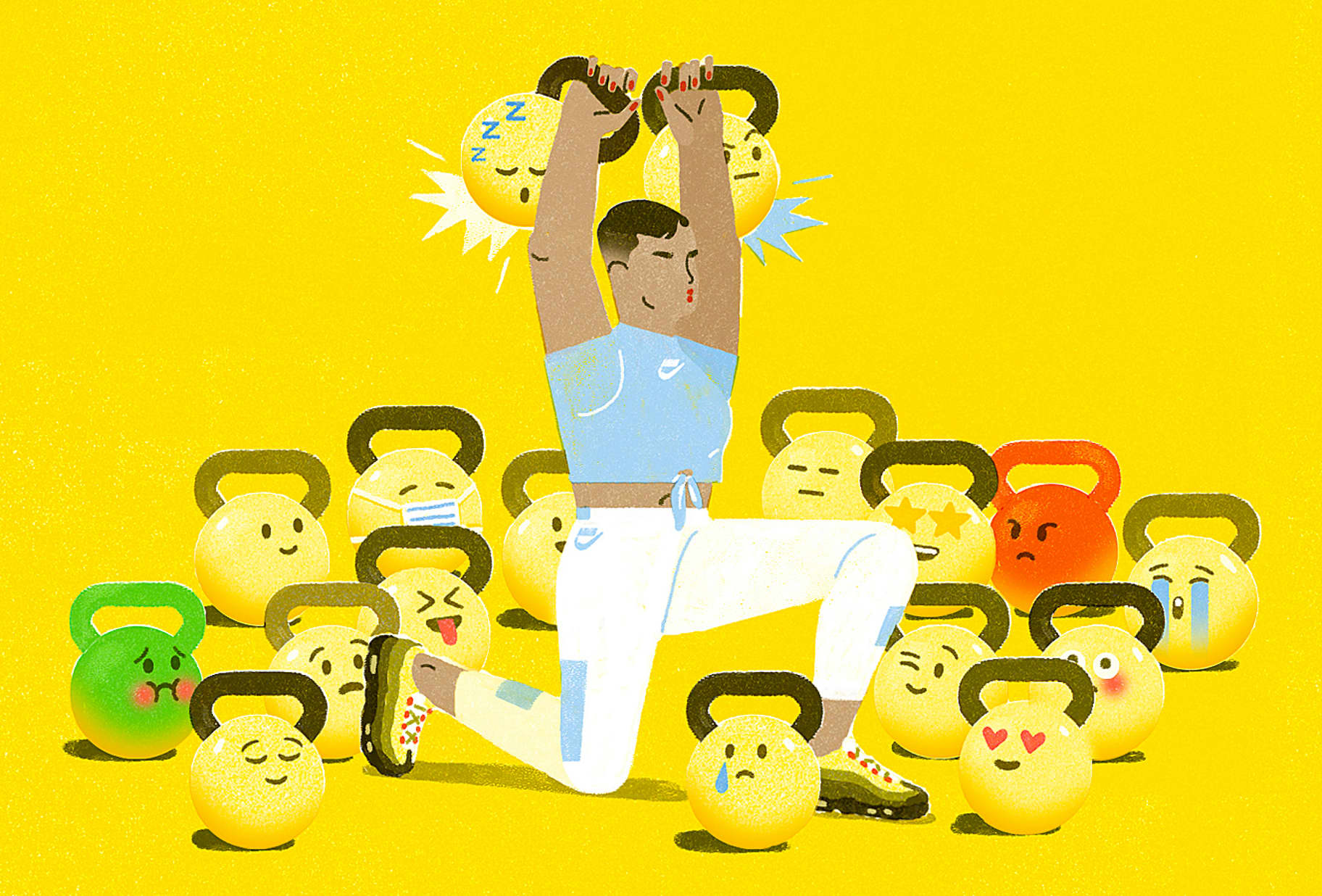What Your Emotions Are Trying to Tell You
Coaching
Experts reveal how negative feelings can have positive effects—and simple ways you can get comfortable with the uncomfortable.

Shed your stress. Find your joy. Don't worry, be happy. Ryan Flaherty, Nike senior director of performance and a Nike Performance Council member, doesn't want to hear it. Sometimes you should feel anxious, says Flaherty. "If you don't, I'm a little worried about you".
Having trained elite athletes in high-pressure situations, Flaherty is no stranger to difficult emotions. Earlier this year, when the world got turned upside down, Flaherty used his podcast, Trained, to help listeners cope with emotions that were a whole new level of difficult. Calling up experts from a huge range of disciplines, he asked, "What do we do with fear, anxiety and sadness when they're pouring in from every direction?" It turns out there's a consensus: only when you embrace challenging emotions can you grow from them.
Listen to the Message
Most of us live with the belief that some emotions are good and others are bad, says Andy Puddicombe, the co-founder of Headspace and a Nike Performance Council member who specialises in meditation and mindfulness. "We don't like how the 'bad' emotions feel, so we resist them. But that resistance actually makes them stronger", says Puddicombe, who recommends meditating to get comfortable with the uncomfortable. "In meditation, you're not trying to get rid of these emotions. You're trying to befriend them, to be at ease with them". (You can start, he says, by simply sitting quietly for a few minutes each day and observing those emotions as they come and go.)
Fully experiencing difficult emotions could even give you vital information about your surroundings. "Ultimately, anxiety is a signal", says Sue Falsone, a clinical specialist in sports physiotherapy and Nike Performance Council member who specialises in recovery. "It's telling you, 'Hey, something in the world is not right!'" Just knowing that it's not necessarily about you can make it a lot easier to accept the emotion, says Falsone.
"We don't like how the 'bad' emotions feel, so we resist them. But that resistance actually makes them stronger".
Andy Puddicombe
Co-founder of Headspace and a Nike Performance Council Member
Psychologist Angela Duckworth, PhD, the bestselling author of Grit, views this "signal" as central to our evolution. Stress and anxiety originate in your hardwired fight-or-flight system, developed over millions of years, says Duckworth. "Your ancestors, if they didn't have a stress response to threat, they didn't survive", she says. "Take the coronavirus crisis. If you weren't stressed, you might not have started washing your hands for 20 seconds. If you were like, 'Oh, it's fine', you wouldn't have taken measures. These are adaptive responses. And the fact that stress is a negative feeling is part of the reason why it works". In fact, during truly challenging experiences, says Duckworth, "if you aren't stressed, you aren't human".
Other emotions may also owe their unpleasantness to evolution. "When you're thirsty, it means you're dehydrated. Your body is telling you that it needs water to survive", says Stephanie Cacioppo, PhD, a neuroscientist and Nike Performance Council member who specialises in loneliness. "Like thirst, loneliness is a signal that tells you you're depleted of something. When you're lonely, it means you need to reconnect with others".
Even though there's no getting away from difficult emotions, you're not powerless to affect them. Here's where to start.
Join the Conversation
First, cut yourself some slack. "It's OK to not be OK. Acknowledging that is number one", says Falsone.
Then, let your emotions do their thing—to an extent. "We don't need to feel stressed about the fact that we're stressed", says Duckworth. To stop the snowball, actively channel pleasant emotions. Duckworth does this with a 30-second exercise she calls Three Good Things. "I call my attention to three good things that happened in the last 24 hours. They can be big or small", says Duckworth. "Usually, our attention goes to the negative. We've evolved to scan the horizon for threats. This exercise draws our attention to what we might overlook". Try it every morning when you wake up.
Puddicombe has his own practice to help him cultivate what Buddhists call loving kindness. "I bring to mind an individual whom I care about", he says. "I picture them sitting somewhere that I know they love. And as I exhale, I imagine them looking increasingly healthy, happy and relaxed. Focusing on their happiness brings about a joy and a connection that I might feel I'm missing". Exercises like this, says Puddicombe, can also reorient you to take positive action. "So often, people will look at meditation as running away from life. I would say it's running towards life. You're taking that quality of mind back into the everyday".
Finally, Dr Cacioppo offers one simple piece of advice that seems to tie all of it together: "Be your own best friend", she says. When you think of a best friend, they're likely encouraging and non-judgemental, supporting you in every way no matter what you're feeling. "Why don't we do that for ourselves?" asks Dr Cacioppo.
Knowing what you know now, the question becomes, "Why don't you start today?"

More From Trained
Check out the current season of Trained to hear Ryan Flaherty's complete interviews with every expert from this article, and get more holistic advice on mindset, movement, nutrition, recovery and sleep.